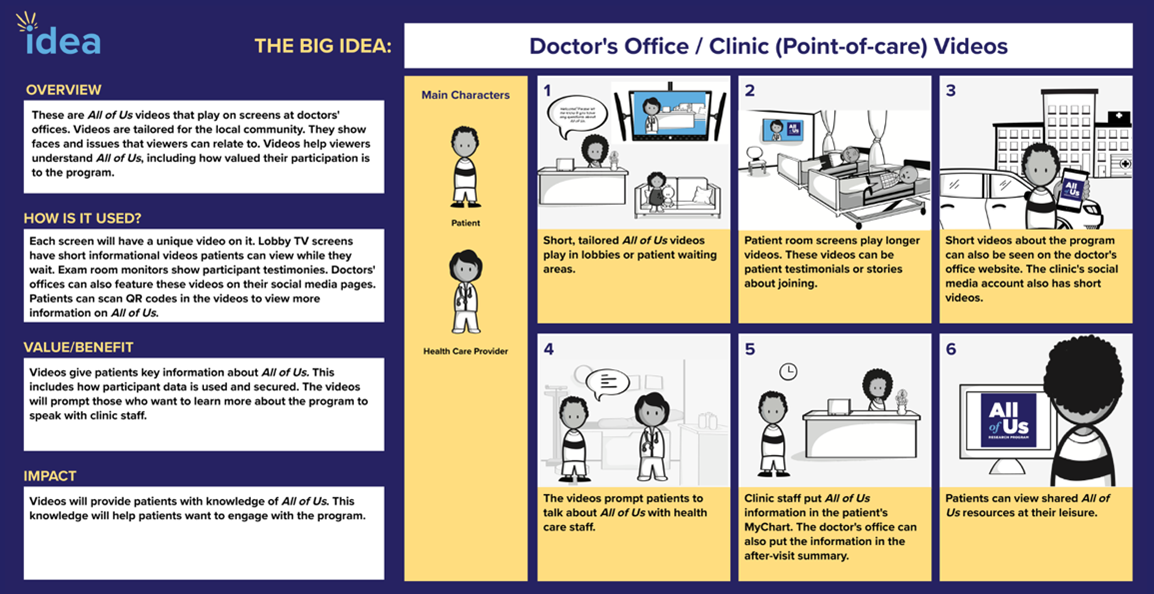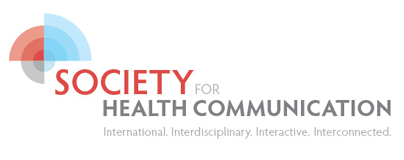Applying Human-Centered Design Principles and Developmental Evaluation to Engage Populations Underrepresented in Medical Research and Health Care Providers with All of Us

Medical research participants need to reflect the diversity of communities across the United States to drive health care innovation that benefits everyone. However, medical research has historically underrepresented members of populations from diverse backgrounds or those with complex diseases. Consequently, we know less about the overall health, effective treatments, and disease prevention for these populations often left out of medical research, and as a result health care often uses a one-size-fits-all approach.
To fill this gap, the National Institutes of Health’s All of Us Research Program is working to enroll one million or more participants in a longitudinal research program and is prioritizing enrollment of members of communities historically underrepresented in medical research. All of Us is working to develop a robust dataset that researchers can use to accelerate health research and medical breakthroughs, enabling individualized prevention, treatment, and care for all of us.
Engaging Populations Underrepresented in Medical Research and Health Care Providers
Many populations underrepresented in medical research have been stigmatized, mistreated, and ignored by the scientific community. Appropriately engaging members of these communities is critical to ensure that individuals make informed decisions about enrolling and remaining in All of Us. One strategy All of Us is using is to collaborate with trusted intermediaries, like health care providers and community-based organizations.
RTI International serves as one of the All of Us Engagement and Retention Innovator Awardees. In this role, RTI works with other consortium members and awardees to research, design, deliver, and evaluate digital solutions using a human-centered design and developmental evaluation approach. Human-centered design focuses on the needs of individuals and communities when developing solutions, while developmental evaluation prioritizes real-time data to inform ongoing decision making as part of the design process.
RTI is creating digital solutions in collaboration with community partners to support health care providers and community members from diverse communities. To begin, RTI conducted a landscape analysis and exploratory research to identify and understand:
-
Disparities among populations underrepresented in medical research across the All of Us participant journey;
-
Strategies used by All of Us to promote engagement, retention, and activity completion among members of these communities;
-
Challenges, gaps, and unmet needs related to engaging health care providers and members of populations underrepresented in medical research;
-
Strategies used by All of Us partners to engage health care providers and community members.
A Human-Centered Design and Developmental Evaluation Approach
Following the landscape analysis and exploratory research, RTI focused on co-creating digital solutions. RTI conducted 71 virtual co-creation workshops with 416 individuals (health care providers and community members, including Black and African American, LGBTQ+, and Hispanic and Latino people) to validate challenges, brainstorm solutions, and refine 84 “idea cards” that depict digital solutions to support engagement with All of Us.
The post-workshop evaluation showed over 90% of workshop participants agreed or strongly agreed that the workshops made them feel more connected to All of Us. Following each workshop, RTI disseminated “Collaboration Updates” to participants that summarized how their insights shaped RTI’s work and provided an avenue to maintain engagement with All of Us.
Workshop ideas were shared with All of Us consortium partners and prioritized for development. During the development phase, the team will build prototypes, conduct user testing, and pilot test the prototypes in collaboration with consortium partners.
